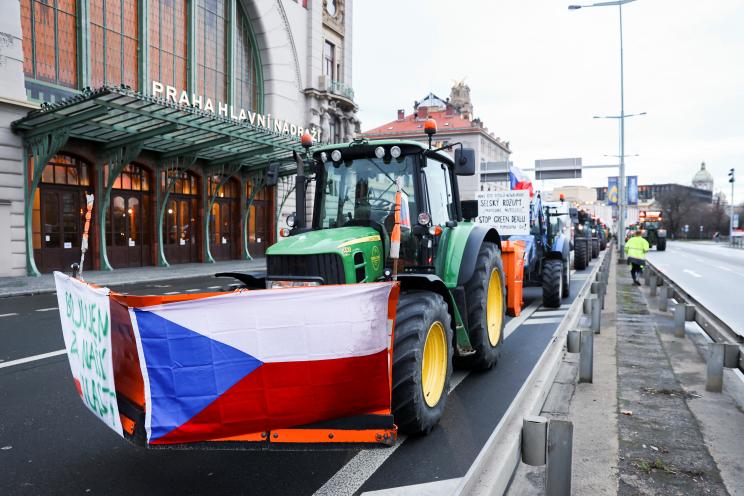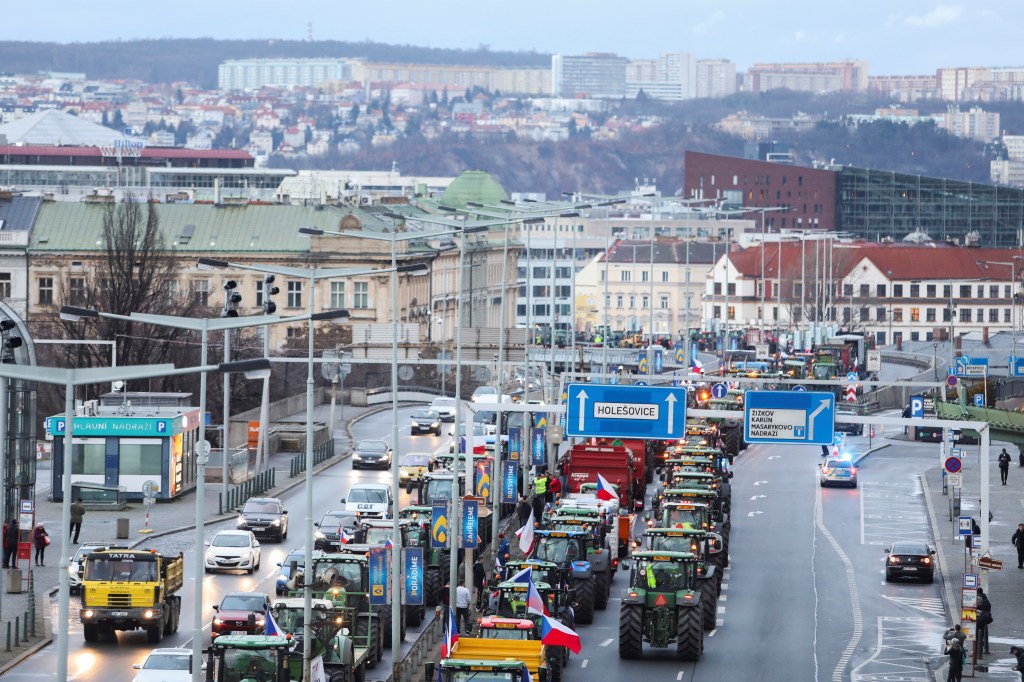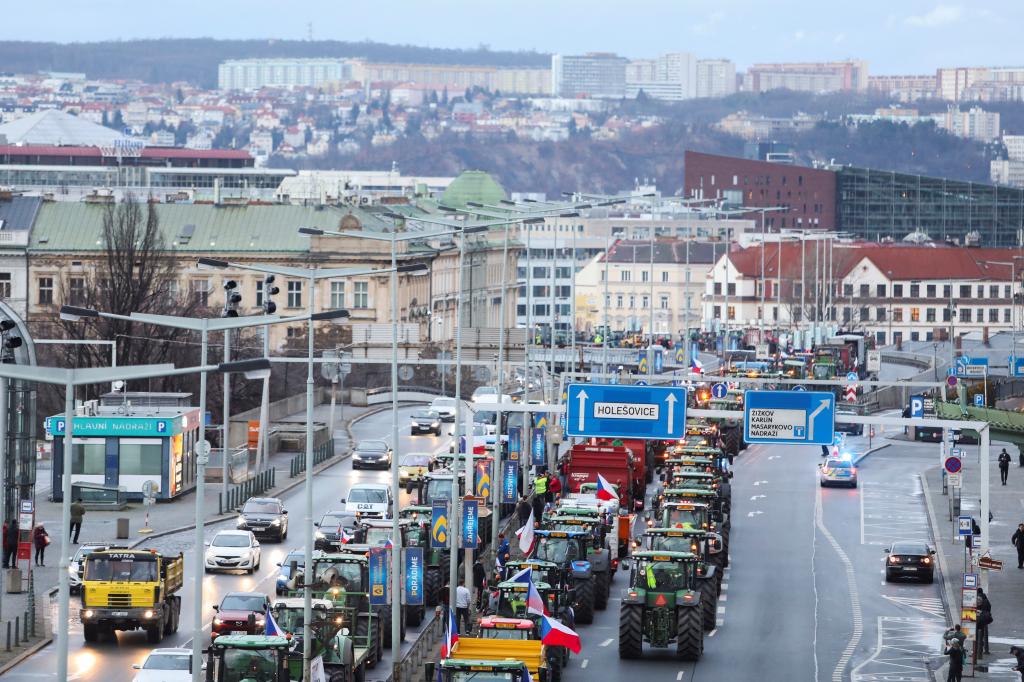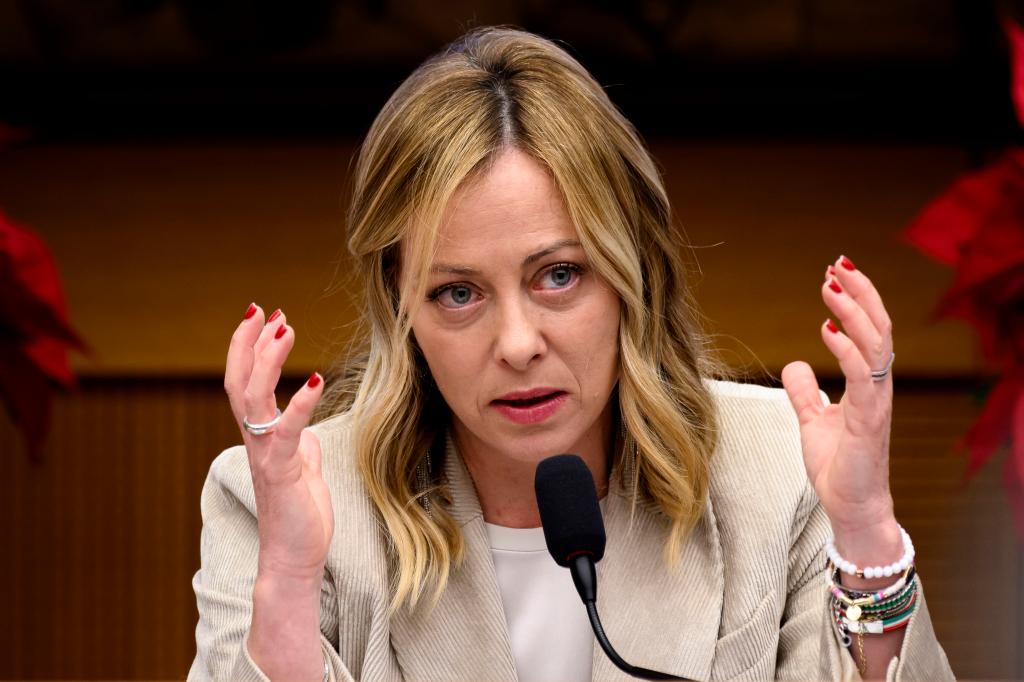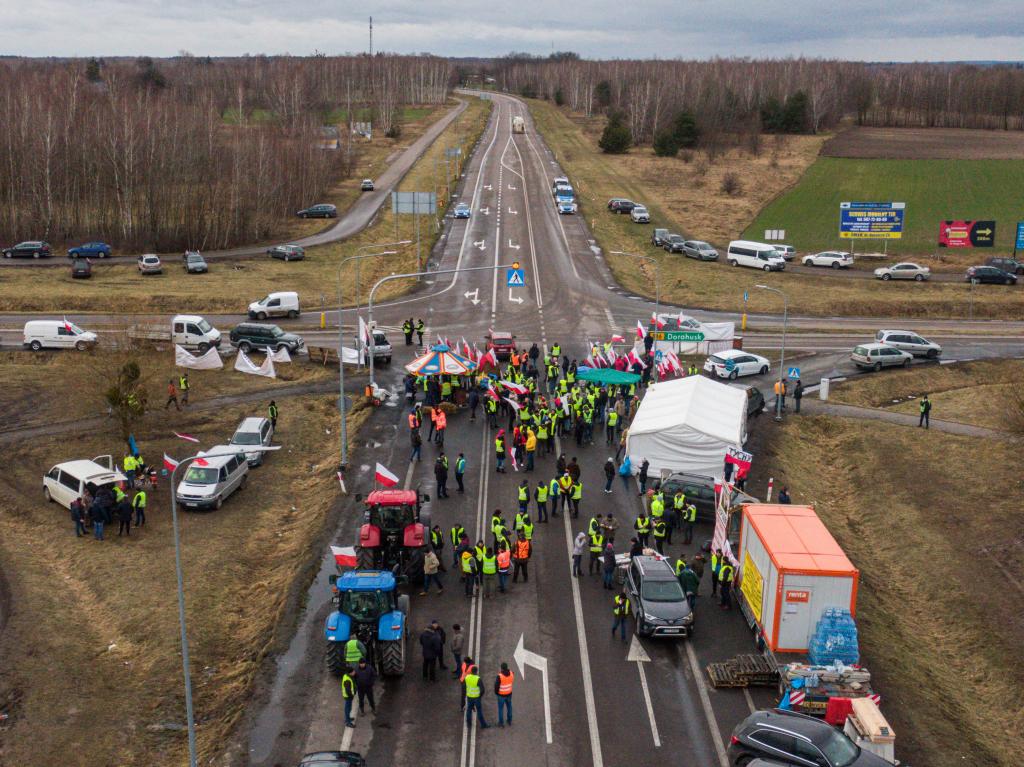From Dusseldorf to Dublin farmers are taking to the streets, voicing their discontent and fighting for their very existence.
This past week, Prague witnessed the arrival of hundreds of tractors to its historic downtown, driven by farmers protesting their discontent with what they claim are unjust EU agriculture policies.
The vehicles were making their way to the Czech Republic Agriculture Ministry, where disgruntled farmers railed against lawmakers for imposing eco-focused regulations resulting in higher costs for their products and making them less competitive compared to imports from outside the European Union.
Ukraine, ironically, is the greatest target of their ire; despite its bloody war with Russia, Ukrainian goods – which are not subject to EU customs duties — continue to flow westward at prices far lower than their European competitors.
Meanwhile, earlier this month, Italian farmers gathered in central Rome to urge Prime Minister Giorgia Meloni to provide additional support for farming and oppose EU regulations they believe are harmful to their sector. Just last week, farmers gathered in the Vatican armed with cows seeking Pope Francis’ blessing for their campaign.
Demonstrations are also occurring in France, Germany, and Poland, where farmers are expressing discontent over rising costs, low agricultural prices, the influx of inexpensive imports, and restrictions imposed by EU policies aimed at addressing climate change.
Like in the Czech Republic, Polish farmers also have their sights set on Kyiv and have intensified their protests along the border with Ukraine, effectively obstructing nearly all traffic in an effort to safeguard their livelihoods.
In Ireland, where I was raised, thousands of farmers are up in arms – including my own father, a long-time beef farmer in County Mayo. He is just one of the many impacted by a rash of draconian policies that are sweeping the once idyllic isle’s agricultural sector. The Irish government recently unveiled a strategy to decrease agricultural emissions by a whopping 25%.
As part of this initiative, the government has recommended a 10% reduction in Ireland’s national dairy herd, which would result in the culling of 200,000 cows. Unsurprisingly, this has sparked outrage among farmers, leading to thousands participating in protests nationwide — on trucks, tractors, and even on foot.
An Independent TD (Teachta Dála, or Member of Parliament) named Michael Healy-Rae, has called the plan “absolute madness.”
It’s hard to argue with him, as culling Irish cattle would simply shift beef and dairy production to other countries. Emissions, some could argue, wouldn’t be curbed; instead, they would be relocated. Tens of thousands of Irish farmers stand to lose their livelihoods. All for what, exactly? Because elites in Brussels have very “ambitious” climate targets that they consider incompatible with traditional farming practices.
Irish farmers know that to fight draconian policies, they need representatives in government, politicians who will work in their interests, not against them.
Enter The Farmers Alliance, Ireland’s most recent political party. Last month, it successfully completed the registration process and is now an official participant in Irish politics. After receiving the necessary approval from the Registrar of Political Parties, the party is now eligible to nominate candidates for local, national, and even European elections.
According to Liam McLaughlin, the leader of the alliance, they have already identified 40 potential n candidates and aim to have over 100 ready by the summer when the polling stations open for Ireland’s upcoming local elections.
The rise of the Farmers Alliance in Ireland is indicative of a far wider European trend — dare I say, conflict. Farmers have faced numerous challenges due to environmental regulations imposed by their respective governments and the European Union.
In the Netherlands, another country beholden to EU bureaucrats, the Dutch government’s limitations on nitrogen emissions may result in the shutdown of approximately 3,000 farms. Farmers have been protesting both on the streets and through voting. Last year, the Farmer-Citizen Movement, a populist party supporting farmers, achieved a landslide victory in the country’s provincial elections
The events in Europe must be viewed through an even broader lens. Since January of last year, farmers in at least 67 countries, including Brazil, Mexico, Kenya, Nepal, and India, have risen up in protest.
Although the reasons for the protests vary, they all have one thing in common: farmers are being targeted by their governments, often to push questionable, environmentally-driven agendas.
The attacks on farmers – and that’s what they are – will hurt us all. By 2030, according to UN reports, the world’s population will grow to 8.5 billion, and possibly even reach 9.8 billion by 2050.
With such a large number of people to feed, farming should be considered one of the most important professions on Earth — a profession in need of saving, not destroying.
Thomas Jefferson, a man with a fondness for farming, famously called agriculture “our wisest pursuit,” largely “because it will in the end contribute most to real wealth, good morals, and happiness.” Its destruction, on the other hand, could result in widespread poverty, diminished morals, and, ultimately, abject misery.
